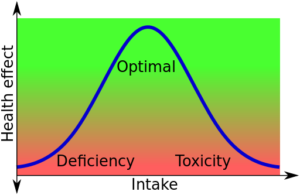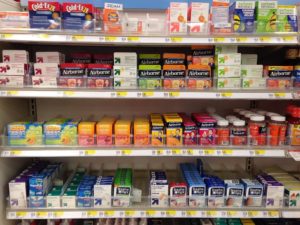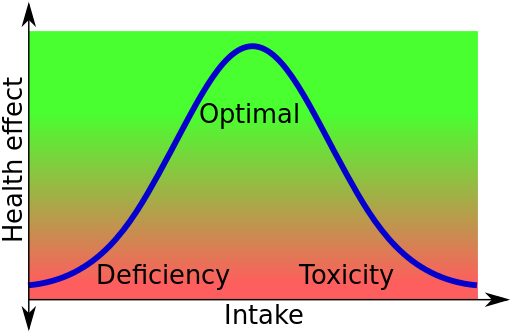A friend with kids who just went back to school asked me about using various zinc products to reduce the length of or prevent the common cold. Years ago, I tried the nasal swab version of one of these products (Zicam) and was amazed at how painful they were. This prompted me to research the use of high concentrations of zinc as an immune-boosting supplement. What I found made me throw out the zinc swabs and never use a zinc-supplemented cold product again.

On a local level, for example dissolvable zinc cold remedies or the nasal swabs, the amount of zinc is not high enough to cause systemic toxicity. However, the amount of zinc that the cells in contact with the lozenge or dissolving tablet could be enough to cause damage to those cells. Indeed, I suspect that damage to the pain-sensing nerves is partially how the throat lozenges work. The Zicam nasal swab product has been discontinued because of permanent damage to the cells in the nose that mediate smell. My instinct for myself and my recommendation to my friends and family are to avoid any product touting zinc as the active ingredient especially if that product is intended to be given in such a way that it maintains contact with a particular part of the body for a prolonged period.
Colds are caused by viruses. They cannot be treated with antibiotics. Most of the symptoms of a cold arise because of the body’s natural immune response to the infection. The cells of the immune system need zinc, but there is no unequivocal evidence that exposing the nose or throat to a high concentration of zinc or taking zinc supplements will reduce the duration of a cold or make anyone less infectious. The 2013 study that reported a beneficial effect was retracted in 2016.

This trio of ingredients (antihistamine, decongestant, NSAID) will help with the symptoms of a cold. They will not prevent an infected person from infecting others (other than by reducing the amount of sneezing and nasal secretions). They will not cure a cold, but they will bring symptomatic relief. Unless a person is deficient in zinc or eats less zinc than is needed for optimal cellular function, ingesting zinc or using a locally applied zinc product is unlikely to have a beneficial effect and could be harmful.
Related Resources
Zinc poisoning, MedlinePlus. U. S. National Library of Medicine. https://medlineplus.gov/ency/article/002570.htm (accessed 13 September 2017)
Information on Zicam Cold Remedy Nasal Gel, Zicam Cold Remedy Nasal Swabs, and Zicam Cold Remedy Swabs, Kids Size. U. S. Food & Drug Administration. U. S. Department of Health and Human Services. https://www.fda.gov/Drugs/DrugSafety/ucm166834.htm (access 13 September 2017)
Das, R. R., Singh, M., Notice of Retraction: Das RR, Singh M. Oral Zinc for the Common Cold. JAMA. 2014;311(14):1440-1441. JAMA 316, 2678 (2016). PubMed
Cite as: N. R. Gough, Will zinc prevent or reduce a cold? BioSerendipity (13 September 2017) https://www.bioserendipity.com/2017/09/13/will-zinc-prevent-or-reduce-a-cold/.

